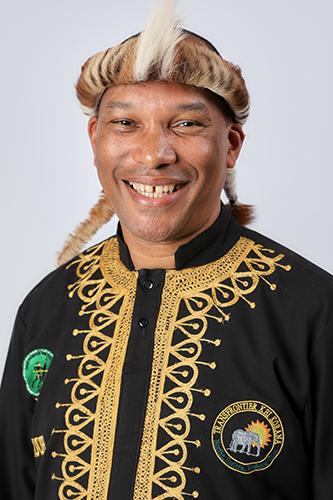
Opening the debate on “Advancing our collective effort to enhance oversight and accountability in the local sphere of government”, the Deputy Minister of Cooperative Governance and Traditional Affairs, Mr Obed Bapela, highlighted the opportunity Local Government Week provided to support cooperative governance between local, provincial and national levels of government.
The goal at local level was for government to be “accountable, ethical and people-centred as stipulated in the constitution” while establishing effective oversight over all levels of government. Mr Bapela proposed the District Development Model as an ideal framework to undertake these responsibilities, because it allows joint budget planning, monitoring and implementation.
But this would only be successful if Section 79 committees at local government level are elected by councillors, rather than the executive to ensure accountability. In addition, municipal public account committees (MPACs) should be properly resourced to carry out their oversight role and should use the Auditor-General’s reports as oversight instruments to fix what is wrong in local government.
The Chief Whip of the NCOP, Mr Seiso Mohai, then spoke about the democratic government’s significant role in reversing the 300-year legacy of apartheid racial inequality. However, corruption and financial mismanagement of local government finances have caused setbacks he said.
This environment has created a new urgency to refashion legislation, oversight and accountability frameworks to delineate the roles of various stakeholders such as audit committees, the Auditor-General, provincial departments, MPACs and the South African Local Government Association.
The decay in local government is the result of a lack of appetite from the Department of Cooperative Governance and Traditional Affairs to stop the deepening rot in municipalities, said Ms Carin Visser (Democratic Alliance, North West Province). A lack of consequence management for fraud and financial mismanagement has contributed to municipalities’ failure to deliver services and comply with their constitutional mandates, she said.
Members of Parliament are responsible for fighting corruption, but often fail in this task, said S’lindile Luthuli (Economic Freedom Fighters, KwaZulu-Natal). As a result, many municipalities in the Eastern Cape are on the brink of financial collapse and are now subject of investigation by the Directorate of Priority Crime Investigation.
The Chairperson of the Select Committee on Appropriations, Ms Dikeledi Mahlangu, called on the local government sector to uphold high levels of professional ethics to combat corruption. She urged public servants to change their attitudes to embrace the principle of Batho Pele, which is a cornerstone of the Public Service Charter.
To professionalise the local government sphere, government should consider establishing a statutory body that would hold local government officials accountable like other public professions, such as accountants and doctors, through means of examinations and integrity tests, she concluded.
.The Local Government Week has come and gone, said Mr Dennis Ryder (Democratic Alliance, Gauteng), but to little effect, without concrete outcomes or decisions. But that was not a surprise because there has been no effort to follow through the recommendations of previous Local Government Weeks. “Instead of talking about the failure of municipalities, let’s do something about it,” he recommended.
By way of contrast, the Chairperson of the Select Committee on Cooperative Governance and Traditional Affairs, Mr China Dodovu, believes that this year’s Local Government Week gave rise to a “festival of ideas” on how to strengthen oversight and accountability for the future trajectory of local government.
We have “now emerged motivated and stronger than ever before to execute our oversight and accountability functions meaningfully. Especially in dealing with corruption and the mismanagement of municipalities,” he proclaimed.
Abel Mputing
16 September 2022

